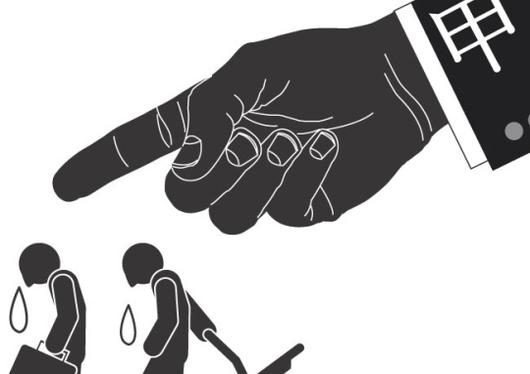 |
The revised Labor Standards Act, which bans bullying in the workplace will be enforced on July 16. The amendment defines and prohibits actions that force physical and mental suffering beyond the “reasonable scope of the task” on a worker based on one's position or "contractual relationship" as bullying in the workplace. The bill bans sixteen types of actions, including forced drinking, forced participation in after-work gatherings, verbal abuse, and the spreading of personal rumors. Even if it is a task order, if it is not recognized as "reasonable," it can be defined as harassment. If such bullying occurs in the workplace, the company must take action, such as disciplinary measures against the perpetrator, after an investigation. Any treatment disadvantageous to the victim or person who reports the incident is also prohibited. The latest bill is significant for it specifies bullying in the workplace, which had been difficult to punish with the Criminal Act in the past, and provides procedures to report and punish such actions.
However, despite the enactment of the bill, there is a great concern that it will be difficult to take proper action or enforce proper punishment. There is no article on the punishment of the perpetrator, which raises questions of the law's effectiveness. There are also many ambiguous criteria, such as what accounts as a “reasonable scope of the task.” By limiting the law to workers subject to the Labor Standards Act, a large number of workers, such as those in special employment, have been left in the blind spot of the law. The bill does not guarantee anonymous reports, and the victim has to prove the damage he or she has suffered. The government must review the problems raised and rectify the shortcomings. Workers should also actively respond to harassment. According to a survey by one non-government organization, workers' awareness of abuse scored an average 68 points, which gives them a D. In other words, they may suffer abuse yet simply endure it not knowing that it is harassment. We cannot root out abuse in the workplace in this manner. Such abuse does not go away if one simply bears it.
Bullying in the workplace is nothing new. The abusive behavior by Yang Jin-ho, former chairman of Korea Future Technology; the late Song Myeong-bin, former CEO of Marker Group; and the family members of the owner of Korean Air plainly revealed the dark side of our society. "Taeum" (“burning,” an abusive culture related to the rigid training of rookie nurses by senior nurses), which has been the cause of a series of deaths among nurses, is another word for bullying in the workplace. There are a lot more unrevealed incidents of abuse in the workplace than we may care to think of. One survey result even showed that two out of every ten workers had suffered from bullying in the workplace this past year. Bullying in the workplace is an immoral crime committed by a person in power to one in a weaker position in the workplace. It is a social evil that violates the basic rights of the people, such as the right to pursue human dignity, value, and happiness. We hope that the enforcement of the new law can completely root out abuse in the workplace in South Korean society.
▶ 최신 뉴스 ▶ 두고 두고 읽는 뉴스 ▶ 인기 무료만화
©경향신문(www.khan.co.kr), 무단전재 및 재배포 금지
이 기사의 카테고리는 언론사의 분류를 따릅니다.
기사가 속한 카테고리는 언론사가 분류합니다.
언론사는 한 기사를 두 개 이상의 카테고리로 분류할 수 있습니다.
언론사는 한 기사를 두 개 이상의 카테고리로 분류할 수 있습니다.


